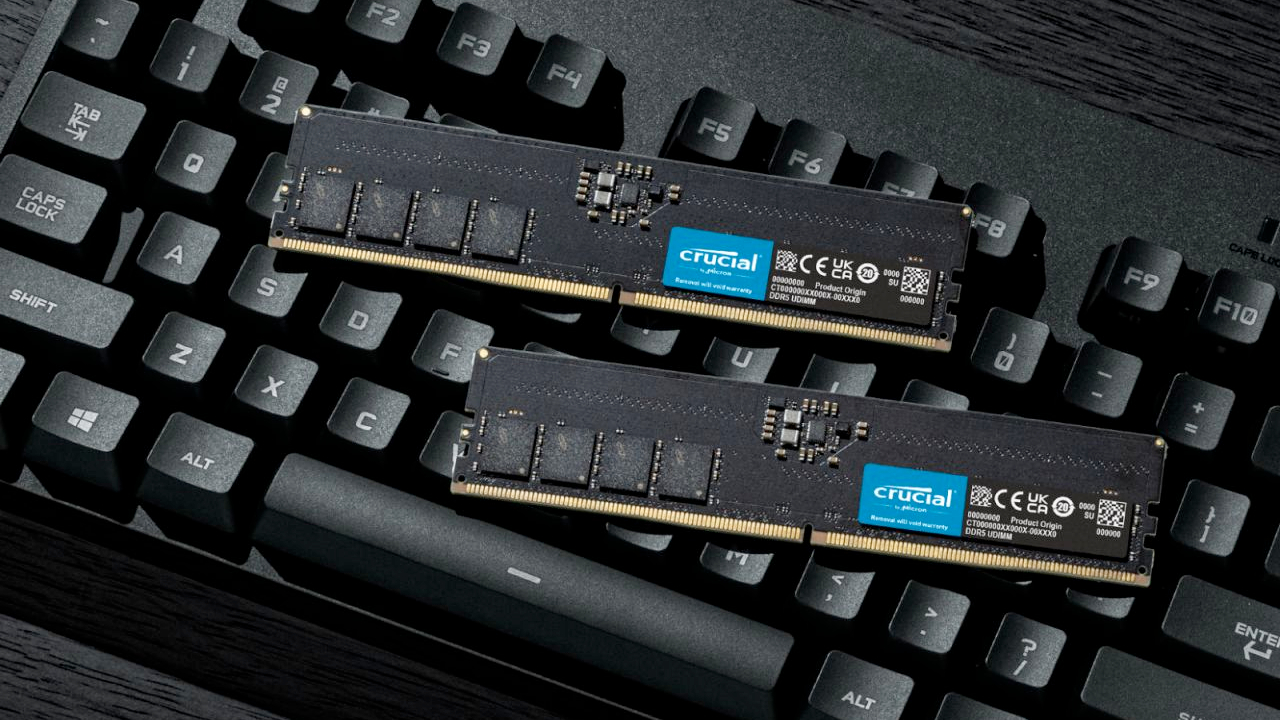DDR5 Price Drops Stalling Because of Supply Constraints: Report
Macroeconomic uncertainties and supply constraints are affecting DDR5 prices.

DDR5 memory was expected to reach price parity with DDR4 or at least hit sweet spot in terms of pricing this year. However, a report from DigiTimes citing memory module makers claims that DDR5 memory price drops are slowing down — and are expected to stop, soon — due to supply-side constraints.
Now that both AMD and Intel are shipping processors supporting DDR5 in high volumes and leading producers of memory have started mass producing various DDR5 memory chips and modules, prices of DDR5 memory should comply with supply-demand balance — and drop, because demand for PCs among consumers is weak.
But it looks like there are two constraints that keep DDR5 prices from dropping. First, DRAM chipmakers are reportedly delaying deliveries of DDR5 chips, and, second, there is a shortage of power management ICs (PMICs) for server-grade memory modules.
It is impossible to tell why companies such as Micron, Samsung, and SK Hynix have all decided to delay shipments of their DDR5 memory chips to module makers. But if there are not enough chips, module makers cannot build modules and price drops will slow down. It should be noted that the report did not name a single DRAM vendor.
TrendForce last week reported an issue with PMIC compatibility for server-grade DDR5 RDIMMs and said that DRAM suppliers and PMIC vendors were working together to resolve the problem. The report suggested that PMICs from Monolithic Power Systems (MPS) have not been affected, leading analysts to predict high demand for MPS PMICs and creating a supply bottleneck for server-grade DDR5 memory modules. The issue of PMIC compatibility is a potential hurdle for the adoption of DDR5 memory in servers, but the collaboration between DRAM suppliers and PMIC vendors indicates a commitment to resolving the issue and ensuring the smooth adoption of DDR5 memory in the server market eventually.
Given that the DigiTimes report mentions two isolated factors for slowing down DDR5 price drops — delayed DDR5 supplies by unnamed vendors and potential shortages of server-grade DDR5 PMICs by MPS — it's hard to draw conclusions about how significantly actual DDR5 prices will be affected. Consumers are unlikely to directly suffer from server-grade DDR5 modules getting more expensive, however, slowing down of DDR5 ramp will indeed affect the pace of DDR5 price drops.
Get Tom's Hardware's best news and in-depth reviews, straight to your inbox.

Anton Shilov is a contributing writer at Tom’s Hardware. Over the past couple of decades, he has covered everything from CPUs and GPUs to supercomputers and from modern process technologies and latest fab tools to high-tech industry trends.
-
Gam3r01 "It is impossible to tell why companies such as Micron, Samsung, and SK Hynix have all decided to delay shipments of their DDR5 memory chips to module makers."Reply
Im sure it has nothing to do with chip making holding back supply to keep prices and profits high. -
Lafong Gee, I wonder if it is a coincidence that 2 x 16 kits of DDR 5 are much more prevalent than those hopelessly passé and embarrassingly inadequate 2 x 8 kits we all struggled mightily with on DDR 4.Reply
Right now on Newegg:
2 x 16 kits.....310 choices.
2 x 8 kits......22 choices.